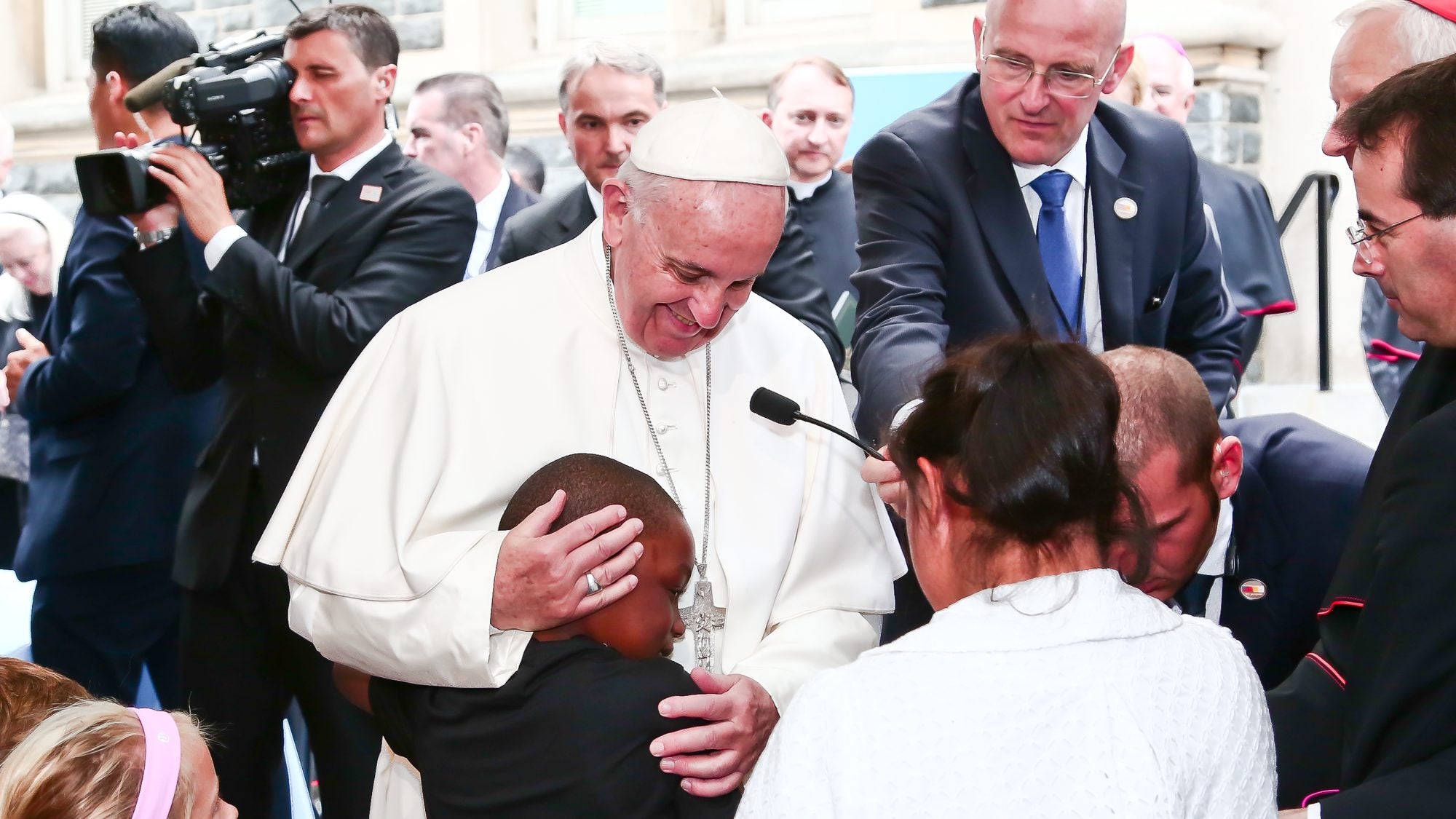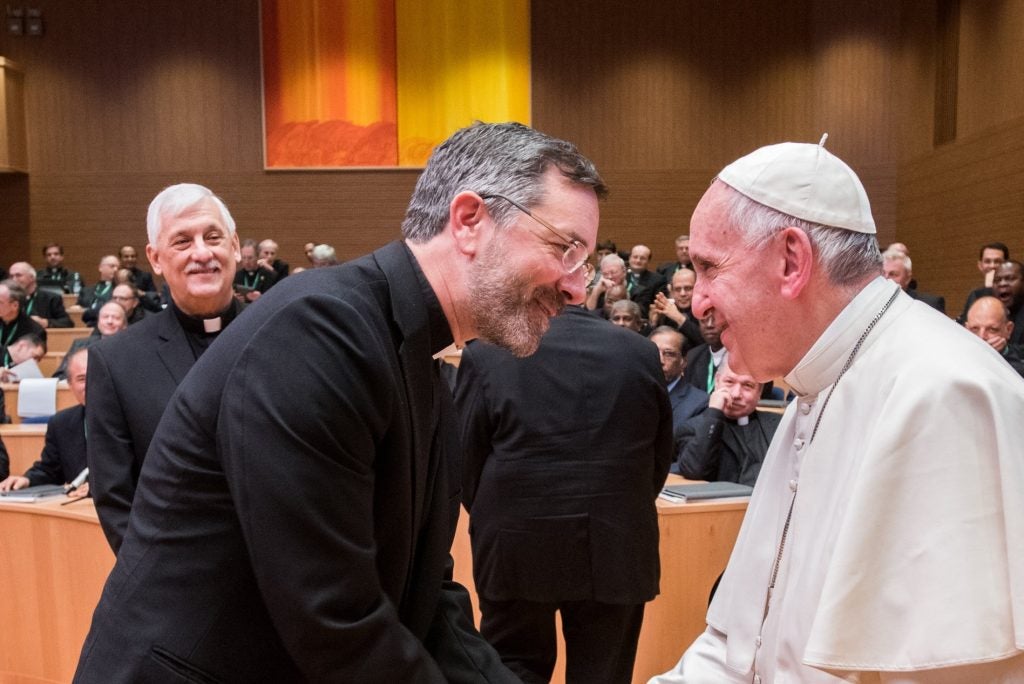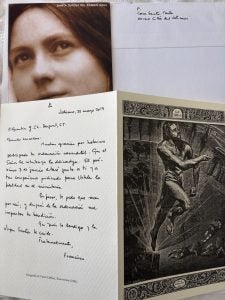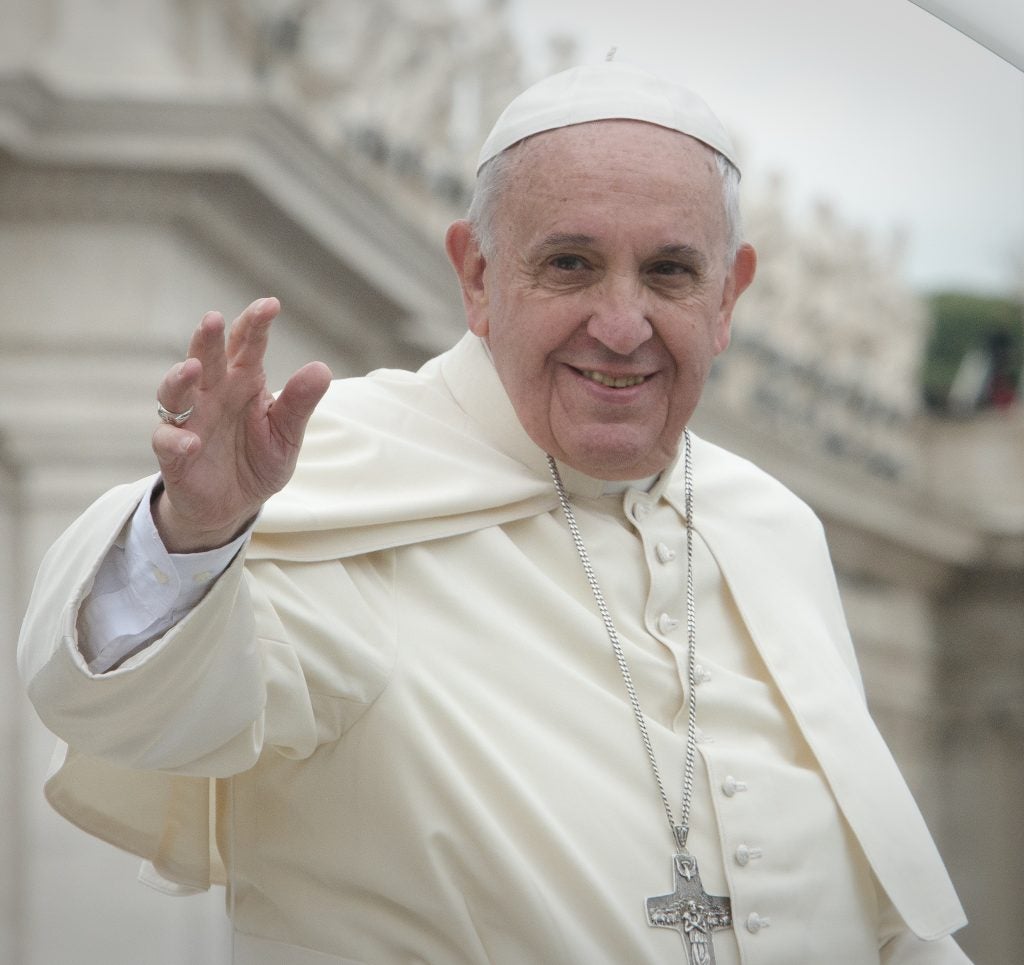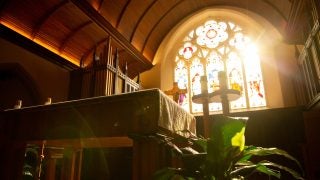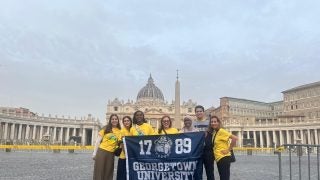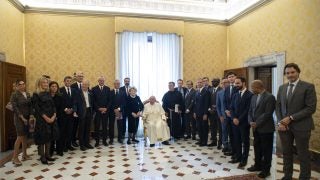On April 21, Pope Francis died at the age of 88.
Along with his legacy of mercy, inclusion and social justice, Pope Francis was known for being the first Jesuit pope in Catholic Church history.
Pope Francis entered the Society of Jesus in 1958 and was ordained in 1969. When he was elected Pope in 2013, he carried his Jesuit roots with him, from the words he used to his focus on the poor and marginalized.
“I would be hard-pressed to imagine what a better Jesuit pope would have looked like,” said Peter Folan, S.J., an assistant professor at Georgetown.
As Catholics and people around the world grieve Pope Francis, we asked Jesuits at Georgetown what they remember about the first Jesuit pope — and what they will miss most about him.
On Forming ‘Big Hearts’
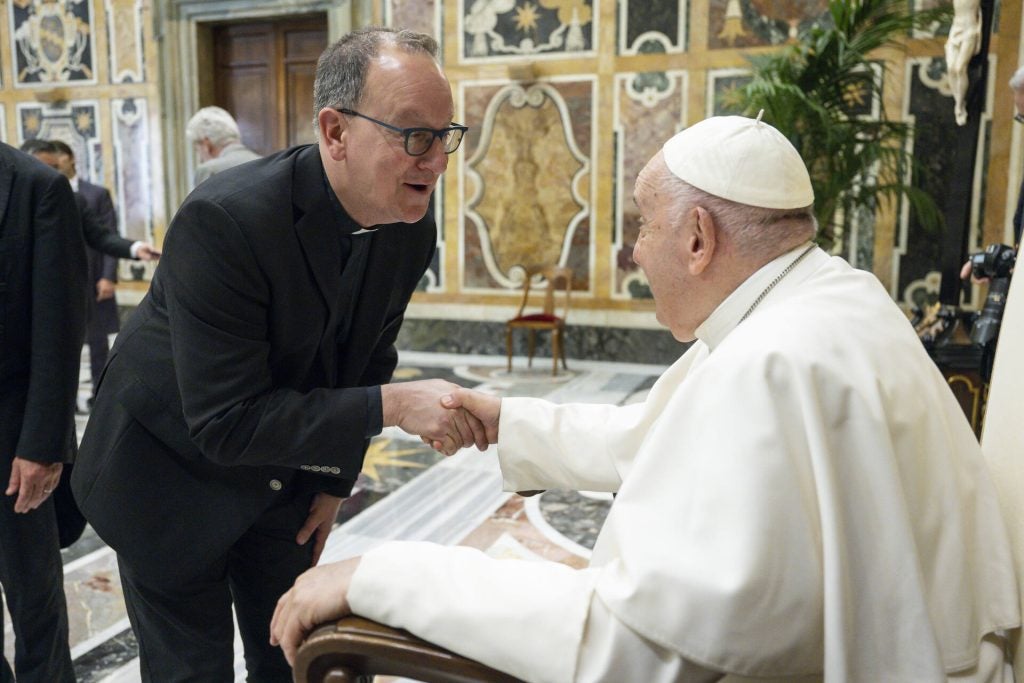
Fr. Mark Bosco, S.J., vice president for Mission & Ministry, met Pope Francis twice during his pontificate, first in 2013 and again in 2023 (above) when he hosted a conference on the Catholic Literary Imagination in Rome with artists from around the world.
I had the good fortune to meet the Pope twice during his pontificate. The first time, in 2013, he had only been pope for a few months. He was speaking to a mostly European group of Jesuits, students and administrators of Jesuit schools — from grade school to university.
Francis was full of life. During the Q&A, he was asked what he thought the essence of a Jesuit education is all about. He said, ‘It is about nurturing a magnanimous heart and putting it at the service of one’s intellect.’ I was so moved by the simplicity and yet depth of that response: We must form big hearts in our students and faculty so that they will have big ideas that can serve the common good of all.
Personally, Pope Francis confirmed my vocation as a priest and Jesuit. Over the years, I would read Francis’s writings and homilies and see the Ignatian insight he was offering to the Church — to find God in all things, to foster a culture of engagement and enculturation, to live a faith that does justice. I was always moved by the gestures of love and compassion he showed to others.
I think his legacy will be both a personal one — he will always be known as the ‘People’s Pope,’ and a universal one — the Church is engaged with the hopes and dreams of the world and can play a part in extending our human flourishing as the people of God.
On His Authenticity
Peter Folan, S.J. is a priest and an assistant professor in the Department of Theology and Religious Studies.
It’s odd to say this about someone I’ve never met, but I really loved the pope. He struck me as having a wonderful and unusual combination of warmth, charm, humor, intelligence, cleverness, generosity, honesty and self-knowledge.
In other words, he was authentic. He was authentically himself, and at the end of the day, I think that is what God is calling each of us to be: to be in touch with and to follow our deepest, truest desires, and then worry as little as possible about what others think of us.
